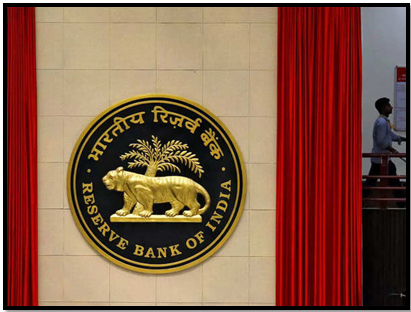“RBI’S RECORD SURPLUS TRANSFER: A BOON FOR THE NEW GOVERNMENT”
Syllabus:
- GS-3- RBI and its functions , Monetary policy of India
Focus :
- The article focuses on the Reserve Bank of India’s record surplus transfer of ₹2.11 lakh crore to the Union Government for 2023-24. This substantial financial boost provides the new government with significant fiscal flexibility, enabling increased capital spending, bridging fiscal deficits, and enhancing economic stability amidst global uncertainties.
Source-TH
- Historic Transfer of Surplus:
- The Reserve Bank of India (RBI) has decided to transfer a record surplus of almost ₹2.11 lakh crore to the Union Government for the fiscal year 2023-24.
- This is more than double the previous year’s ₹87,416 crore payout and exceeds the interim Union Budget’s expectation of ₹1.02 lakh crore from banking and financial system surpluses.
- Timing and Importance:
- The transfer comes at a crucial time, providing significant financial leverage to the new government that will present its Budget in July.
- The surplus transfer reflects the prudent asset management and strategic planning by the RBI amidst global economic uncertainties.
- Impact on Fiscal Planning:
- This substantial financial boost gives the upcoming Finance Minister considerable flexibility in planning expenditure and fiscal policies.
- The funds can be utilized to balance the Budget, stimulate economic growth, and address fiscal deficits.
Sources of Surplus
Higher Interest Income:
- A significant portion of the surplus is attributed to higher interest income from the RBI’s holdings of overseas securities.
- The global environment of policy tightening and interest rate adjustments by central banks contributed to this increased income.
Foreign Exchange Market Interventions:
- Gains from the RBI’s interventions in the foreign exchange market to manage rupee volatility also played a key role in swelling the surplus.
- The strategic management of foreign exchange reserves helped in stabilizing the rupee and accruing additional gains.
Foreign Exchange Reserves:
- As of March 29, the RBI’s foreign exchange reserves increased by $67.1 billion over 12 months, reaching $645.58 billion.
- The increase in reserves reflects effective management and favorable global economic conditions.
Prudential Measures and Risk Management
Contingent Risk Buffer (CRB):
- The RBI raised its provisioning under the Contingent Risk Buffer by 50 basis points to 6.5% of its balance sheet size for 2023-24.
- This move signals the central bank’s confidence in the domestic economy while preparing for unforeseen contingencies and global financial system shocks.
Strengthening Economic Stability:
- By increasing the CRB, the RBI ensures a robust buffer against potential economic threats, thereby enhancing the overall financial stability of the country.
- This prudent approach safeguards the economy from unexpected global developments and market volatility.
Confidence in Domestic Economy:
- The higher provisioning reflects the RBI’s optimism about the health of the Indian economy.
- This confidence is based on careful monitoring of economic indicators and strategic interventions.
Benefits for the New Government
Capital Spending Opportunities:
- The surplus transfer provides the new government with an opportunity to increase capital spending, which is essential for long-term economic growth.
- Enhanced capital spending can stimulate job creation, infrastructure development, and overall economic activity.
Bridging the Fiscal Gap:
- Some of the additional funds can be used to bridge the fiscal deficit, thereby improving the government’s financial position.
- This fiscal support can reassure investors about the government’s commitment to fiscal consolidation and economic stability.
Boosting Private Consumption:
- At a time when private consumption expenditure is struggling to gain momentum, the surplus can be used to stimulate demand through targeted spending.
- Increased government expenditure can provide the necessary tailwinds for sustained economic growth.
Strengthening Investor Confidence:
- The RBI’s surplus transfer helps in demonstrating fiscal prudence and stability, which is crucial for maintaining investor confidence.
- A strong fiscal position can attract foreign investments and support economic recovery.
Strategic Implications
Economic Resilience:
- The RBI’s surplus transfer and prudent risk management strategies underscore the resilience of the Indian economy.
- This resilience is crucial for navigating global economic uncertainties and maintaining growth momentum.
Fiscal Policy Leverage:
- The new government can leverage the surplus to implement strategic fiscal policies aimed at boosting economic growth and stability.
- This includes potential tax reforms, social welfare programs, and infrastructure investments.
Long-Term Economic Planning:
- The availability of additional funds allows for better long-term economic planning and development initiatives.
- Strategic investments in sectors like education, healthcare, and technology can be prioritized to drive sustainable growth.
Alignment with Global Economic Trends:
- The RBI’s strategies align with global economic trends of policy tightening and risk management, ensuring that India remains competitive and stable.
- This alignment helps in mitigating the impact of global economic fluctuations on the domestic economy.
Conclusion
RBI’s Role in Economic Stability:
- The RBI has played a crucial role in ensuring economic stability through prudent asset management and strategic surplus transfers.
- Its actions have paved the way for the new government to start with confidence in the resilience of the Indian economy.
Strategic Utilization of Surplus:
- It is imperative for the new government to strategically utilize the surplus to address immediate economic challenges and promote long-term growth.
- Effective utilization of these funds can lead to enhanced economic stability and prosperity.
Building Investor Trust:
- By demonstrating fiscal discipline and strategic financial management, the government can build and maintain investor trust.
- This trust is essential for attracting investments and fostering economic development.
Future Outlook:
- The RBI’s surplus transfer sets a positive precedent for future fiscal management and economic planning.
- With prudent financial strategies, India can navigate global economic challenges and achieve sustained growth.
Source:The Hindu
Associated Article :
https://universalinstitutions.com/heres-looking-at-you-rbi/
Mains Practice Question :
GS-3
“Discuss the strategic significance of the Reserve Bank of India’s record surplus transfer to the Union Government for the fiscal year 2023-24. Analyze its potential impact on the new government’s fiscal policy, capital spending, and overall economic stability”. (250 words)




